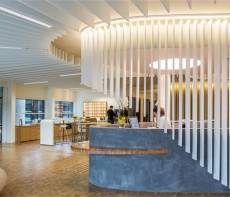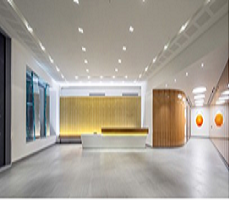May 16, 2014
BCO office standards include guidance on provisions for cyclists for first time
The new edition to the British Council for Offices’ Guide to Specification, which provides guidance on industry standards for workplaces across the UK will contain guidance on provisions for cyclists for the first time. The new 2014 edition to the office standards guide due for publication later in the year, recommends one shower per ten cycle spaces and one cycle space per 100m2, reflecting the evolving face of travel to and from the office environment. Another significant change is to the recommended workplace density, which has been reviewed to take into account the ever more diverse way businesses are now using their workspaces; which includes the adoption of more flexible working patterns. The report states that: “Considering workplace density alone may overstate the demands placed on building infrastructure, or result in over provision if used as the basis for design.”



























